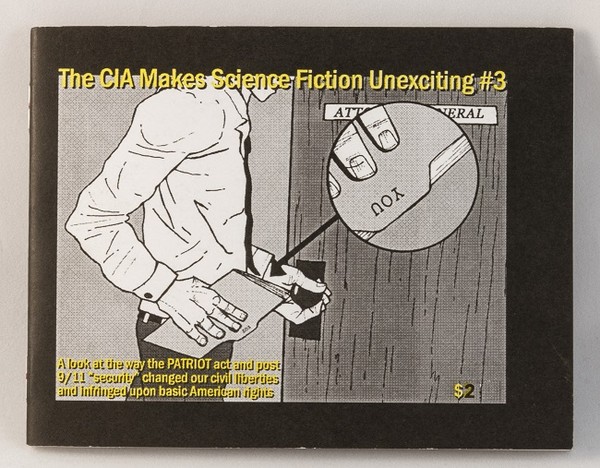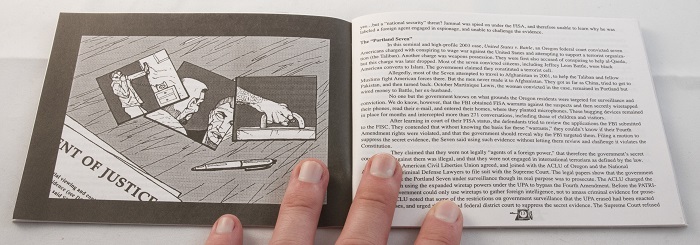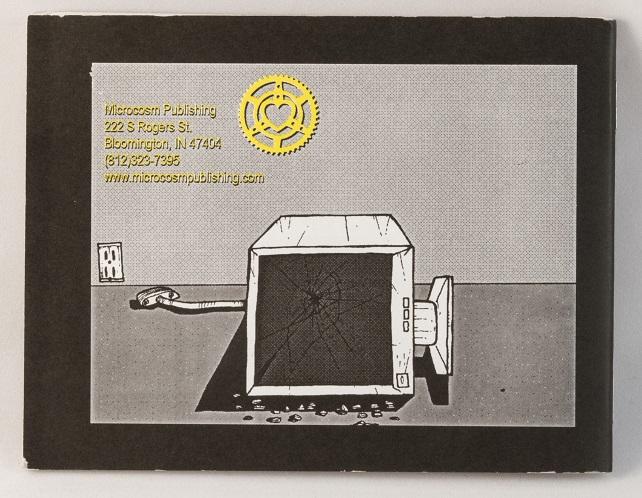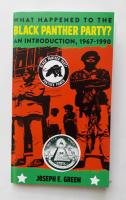
The CIA Makes Science Fiction Unexciting #3: The PATRIOT Act
by Gena Mason Author, Joe Biel Series Editor and Keith Rosson Illustrator
A look at the way the PATRIOT act and post 9/11 security measures infected our civil liberties and infringed upon basic American rights and freedoms. We are proud to present a document that everyone needs to be reading and getting upset about! Abner traded off his zine duties for this issue for the text to be written by Gena Mason and Illustrations by Keith Rosson. Note the resemblances to an airplane safety manual.
You must log in to comment.

























Comments & Reviews
“Yeah, fuck Ollie North! And Reagan!”
In other news, Gena [Mason's] publicly and critically acclaimed political zine,
The CIA Makes Science Fiction Unexciting, Vol. 3, is now on display at
Chicago's Museum of Contemporary Art, as part of the museum's USA Today
exhibition.
Let me begin this review by saying that I don’t believe in the men in black, the black helicopters or that the government puts bar codes on the stop signs so that the UN will know how to track us when they come to town to take over. I also believe that Lee Harvey Oswald acted alone (??!?!!!!! -Ed). That being said, The CIA Makes Science Fiction Look Unexciting #3 scared the beejesus out of me. The ‘zine, written by Gena Mason, is about a secret “spy court” called the Foreign Intelligence Surveillance Court (FISC), which exists because of a law called the Foreign Intelligence Surveillance Act (FISA). The government, through the Department of Justice/FBI, requests warrant-less surveillance orders without probable cause. The court—entirely in secret—decides whether or not to grant the surveillance request. Routinely, the FISC issues phone taps and allows other property searches of people who do not even know they are being monitored. Initially, this court was intended to be used only against spies, international terrorists and enemies of the United States; in other words, it was not intended to be used for ordinary criminal investigations. However, since September 11, the FISA has been used increasingly against “agents of a foreign power”. What exactly does that mean? No one seems to know. But the definition, it seems, is quite fluid and can apply to myriad of situations. The ‘zine does a nice job of discussing how the FISC violates numerous Amendments. Further, the author examines the way the FBI and the Department of Justice use and abuse this law. I won’t be giving anything away to say that there are a lot of abuses of this law. And in case you were wondering, between 1979 and 2002, the secret FISC denied exactly zero surveillance applications. And when they did deny any, they were swiftly appealed and the original denial was promptly overturned. Did I mention that when the government appeals the matter to the FISC appellate court, only the government gets to argue its case? There is no one present to argue the opposite side, and the government can present new arguments that it failed to present at its original application request. After reading this ‘zine, I had to ask myself: how in the hell did I not know about this? I mean, I went to law school. I pay attention to the news. Yet somehow news of this agency escaped me. Oh wait. That’s because the news doesn’t report anything about it. Oh, dear. Maybe Lee Harvey didn’t act alone after all…
This quarter sized zine presents a chilling look at civil liberties in a USA PATRIOT AC world that resembles an espionage movie with governmental bad guys. It's scary, depressing, and crammed with facts and numbers. It's also set in type so small and columns so wide that it's blinding to decipher.
A timely look at evil US semi-secret foreign policy and mischief making that should help erode your war support.
Well researched zine that discusses programs designed to police and watch foreign groups, which instead violate anything that seems remotely legal and is reminiscent of Nixon era underhandedness. Very informative and disturbing.
I’ll admit, I was a bit confused. I think I’m generally pretty smart and I get the gist of things as they are happening and upon what I’m reading. I like to think I read a lot and increase my brain power, but I was a bit lost here. This ¼ sized zine series takes on tricky subjects and breaks them down to their fucked-up core. The first issue took on the CIA’s role in the assassination of Martin Luther King while the second issue exposed the government’s role in the creation of AIDS. This issue explores the inner-working’s and secrecy behind the PATRIOT Act. It is (like all other issues) amazingly researched and documented, but delves quite deeply into the legalese, which is where I got caught up on. I get the basic idea that the government can basically invade my space and privacy without me knowing it and use it against me, which is not only unconstitutional, but also scary and fucked up as well. If you can read like a lawyer does than this will be some crazy shit, and if you don’t read like a lawyer than, well, I still suggest learning about the implications of this bullshit piece of legislation. They need to make a dumbed-down version for people who like reading comic books instead.
Ever get really paranoid that the government is watching you, bugging your phones, and reading your e-mail? You might not be so nutty after all. This zine explains how the Patriot Act now allows the Foreign Intelligence Surveillance Court to conduct surveilance on American citizens, without a warrant or a reason, and use any evidence collected (including anything they go into your home and take without ever informing you) against you in a trial without a jury. Even if you never involve yourself in "questionable activities", communicating with someone who does sets you up as a surveillance target. Steering clear of conspiracy theories, the author cites declassified government documents, court records, and reports from credible organizations to show how the Patriot Act violates the Constitution, primarily the 1st and 4th Amendments. This zine is a good summary of what the Patriot Act means to American citizens.
"Information about how the PATRIOT act has made way for a secret court to spy on you without a warrant, and without ever having to make you aware of their presence. They can actually arrest someone for a crime that they see committed, in the course of watching you, and use this surveillance as evidence against this third person, without you ever finding out. Scary stuff, I guess. Why would anyone want to watch me, though?"